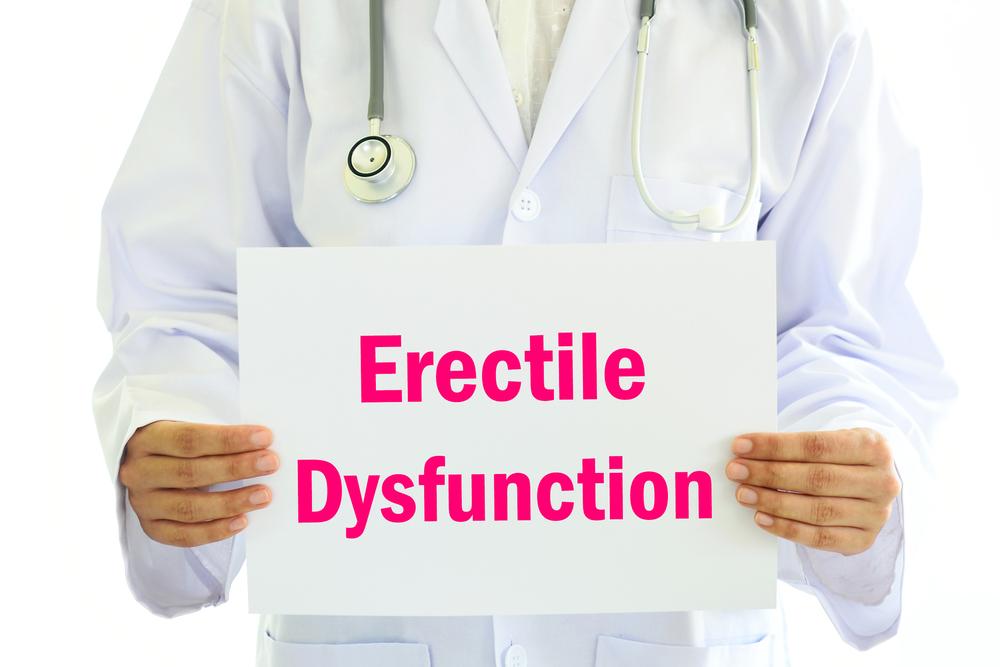Comprehensive Guide to Male Erectile Dysfunction: Causes, Treatments, and Lifestyle Strategies
Erectile dysfunction (ED) affects many men, especially over 50, impacting intimate relationships and quality of life. This comprehensive guide explores the causes of ED, including blood vessel issues and hormonal imbalances, as well as effective treatments like medications, lifestyle changes, and psychological support. It emphasizes the importance of healthy habits such as maintaining weight, diet, and communication with partners. From pharmacological options to natural remedies and psychological counseling, understanding and managing ED can lead to improved sexual health and relationship satisfaction. Discover practical strategies for overcoming this common condition.

Understanding Male Erectile Dysfunction: Causes and Top Treatment Options
Sexual intimacy and physical connection are fundamental elements of a healthy romantic relationship. These aspects not only contribute to emotional bonding but also influence overall relationship satisfaction and emotional well-being. Maintaining proper sexual performance is therefore crucial, as it directly impacts relationship harmony and individual confidence. Erectile dysfunction (ED), a condition characterized by the inability to achieve or maintain an erection sufficient for sexual activity, can pose significant challenges, even in otherwise strong partnerships. Studies reveal that nearly 50% of men over 50 experience some form of ED, highlighting its widespread nature.
Understanding the root causes of ED is essential to address it effectively. Normally, during sexual arousal, nerves in the penis release nitric oxide, a vital chemical that relaxes blood vessels, allowing increased blood flow into the penile chambers. This physiological process results in an erection. However, various factors can disrupt this process. Reduced levels of nitric oxide, blood vessel constriction, blockages, or arterial stiffness can impede sufficient blood flow, leading to difficulties in obtaining or sustaining an erection. Men facing chronic health conditions such as diabetes, high blood pressure, high cholesterol, or heart disease are at a higher risk of developing ED due to the damage these conditions can cause to blood vessels and nerve functions.
Pharmacological treatments are often the first line of defense against ED. Medications like Sildenafil (Viagra), Tadalafil (Cialis), Avanafil (Stendra), and Vardenafil (Levitra) are PDE5 inhibitors that enhance nitric oxide effects, promoting increased blood flow. These drugs enable approximately two-thirds of men with ED to achieve successful erections. While effective, they may come with side effects including headaches, dizziness, nasal congestion, and indigestion. Each individual may respond differently, necessitating tailored dosage adjustments and medical supervision. For those who cannot or prefer not to use medications, alternatives include surgical options such as penile implants, vascular surgery to improve blood flow, or mechanical devices like vacuum erection pumps, which draw blood into the penis to induce an erection.
Beyond pharmacotherapy, lifestyle modifications play a crucial role in managing and potentially reversing ED. Addressing the underlying causes through healthier habits can significantly improve sexual function. The following strategies are highly recommended:
Maintaining a Healthy Weight: Excess weight, especially abdominal fat, promotes systemic inflammation and alters hormone levels by increasing estrogen and decreasing testosterone, which impairs erectile function. Engaging in regular physical activity and adhering to a balanced diet can help restore hormonal balance and improve vascular health, leading to better erectile quality.
Limiting Alcohol, Caffeine, and Nicotine: These substances can negatively impact libido and blood vessel health. Alcohol in excess can impair the nervous system’s response, while nicotine constricts blood vessels and diminishes overall cardiovascular health, both of which hinder erectile performance.
Adopting a Heart-Healthy Diet: Consuming a diet rich in fruits, vegetables, whole grains, and lean proteins supports overall vascular and cardiovascular health, crucial for erectile function. Diets like the Mediterranean diet and traditional Asian herbal remedies, such as ginseng, have shown promising results in reducing ED symptoms and enhancing sexual performance.
Medications Review: Some medications prescribed for hypertension, diabetes, or cardiovascular conditions might contribute to ED as a side effect. Consulting with a healthcare professional to evaluate and modify these medications can lead to improvements in sexual function without compromising overall health.
Psychological Support and Counseling: Mental health factors such as stress, anxiety, depression, and performance pressure can exacerbate ED. Psychotherapy, counseling, or sex therapy can help address these emotional and psychological barriers.
Effective Communication with Partners: Open discussions about concerns and expectations can reduce anxiety and foster understanding. Building a supportive environment encourages cooperative efforts toward improving sexual health.
Timing of Sexual Activity: Changing the timing of intimacy to when both partners feel most relaxed and energetic, such as earlier in the day, can improve performance. Additionally, paying attention to nocturnal erections can provide insight into physiological function and help tailor treatment plans.
Successfully managing ED typically involves a combination of medical intervention, lifestyle improvements, and psychological support. Patience and persistence are essential, as addressing underlying health issues and adopting healthier habits can lead to significant improvements over time. Supporting a partner with ED can be challenging, but maintaining a positive outlook and focusing on overall well-being fosters better outcomes and enhances relationship intimacy.





